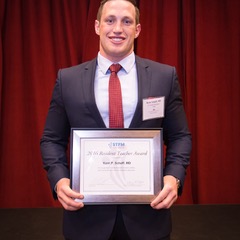The Importance of Sports Physicals in Primary Care
Sports physicals, also known as pre-participation physical examinations (PPE), play a crucial role in ensuring the safety and well-being of athletes at all levels. Dr. Kent Scheff, a renowned expert in primary care sports medicine, emphasizes that these evaluations are not just a formality but a vital component of preventive healthcare. They serve multiple purposes, including identifying pre-existing conditions that may increase the risk of injury, assessing an athlete’s overall fitness level, and providing an opportunity for health education. As primary care physicians often find themselves on the front lines of conducting these examinations, it’s essential to approach them with thoroughness and attention to detail.
Key Components of a Comprehensive Sports Physical
According to Dr. Kent Scheff, a comprehensive sports physical should encompass several key elements:
- Medical History Review: This includes discussing past injuries, surgeries, and any chronic conditions that may affect athletic performance.
- Physical Examination: A thorough examination of the cardiovascular, respiratory, and musculoskeletal systems is crucial.
- Vital Signs Assessment: Checking blood pressure, heart rate, and respiratory rate provides valuable baseline information.
- Vision and Hearing Tests: These sensory evaluations are often overlooked but can significantly impact an athlete’s performance and safety.
- Flexibility and Strength Testing: Assessing an athlete’s range of motion and muscle strength can help identify areas prone to injury.
- Sport-Specific Considerations: Tailoring the examination to the specific demands of the athlete’s sport is essential for targeted risk assessment.
By addressing each of these components, primary care physicians can ensure a thorough evaluation that goes beyond mere clearance for participation.
Addressing Mental Health in Sports Physicals
An often-overlooked aspect of sports physicals is the assessment of an athlete’s mental health. Dr. Kent Scheff stresses the importance of incorporating mental health screening into these examinations. Athletes face unique pressures and stressors that can impact their overall well-being and performance. Primary care physicians should be prepared to discuss topics such as anxiety, depression, eating disorders, and substance abuse.
Leveraging Technology in Sports Physicals
As technology continues to advance, primary care physicians have new tools at their disposal to enhance the sports physical process. Electronic health records (EHRs) can streamline the documentation process and provide easy access to an athlete’s medical history. Wearable devices and smartphone apps can offer valuable data on an athlete’s activity levels, sleep patterns, and recovery metrics. While these technological advancements should not replace clinical judgment, they can provide additional insights to inform the overall assessment.
The Role of Collaboration in Sports Medicine
Effective sports medicine care often requires a collaborative approach. Primary care physicians should be prepared to work closely with specialists, athletic trainers, coaches, and parents to ensure comprehensive care for athletes. This may involve coordinating referrals for further evaluation, communicating with school or team officials about participation restrictions, or providing ongoing monitoring for athletes with chronic conditions. By fostering these collaborative relationships, primary care physicians can ensure that athletes receive the best possible care both on and off the field.
Sports physicals represent a unique opportunity for primary care physicians to positively impact the health and safety of athletes. By following a comprehensive approach, addressing mental health concerns, leveraging technology, and embracing collaboration, physicians can provide high-quality care that goes beyond simple clearance for participation. As the field of sports medicine continues to evolve, staying informed and adaptable will be key to providing the best possible care for athletes of all ages and skill levels.


